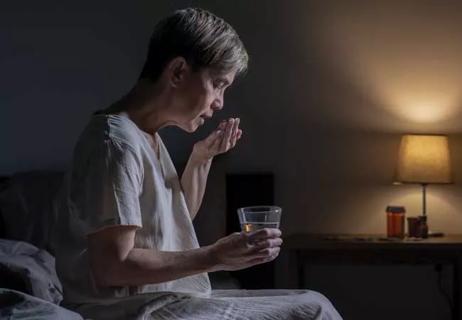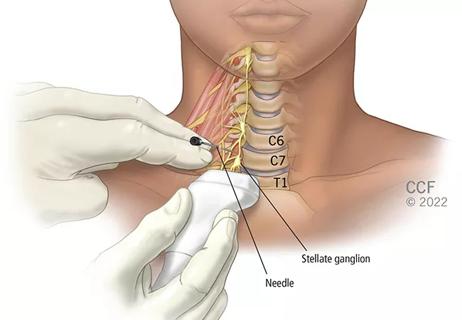Post debug info: client: {"assets":{},"datasets":{},"live":{},"projects":{},"users":{},"observable":{"assets":{},"datasets":{},"live":{},"projects":{},"users":{}}} Now: 1770612779850 Cache Key: cqdDataBySlug:what-long-covid-means-for-rheumatologists-video fetchCache[cqdDataBySlug:what-long-covid-means-for-rheumatologists-video].expirationTime: falsey fetchCache[cqdDataBySlug:what-long-covid-means-for-rheumatologists-video]. seconds remaining: falsey All fetchCache expiration times: -- Key: cqdNotFoundPage, seconds remaining: 1991 -- Key: cqdDataBySlug:is-joint-inflammation-and-pain-after-total-knee-arthroplasty-an-infection-or-gout, seconds remaining: -94891 -- Key: cqdDataBySlug:hospital-medicine, seconds remaining: -21698 -- Key: cqdPostsByCategory:cqd-migrated-category-22768,1,10, seconds remaining: -20936 -- Key: cqdDataBySlug:how-digital-tools-for-patients-are-reshaping-care-for-cardiometabolic-disorders, seconds remaining: -21449 -- Key: cqdDataBySlug:reigniting-joy-and-enthusiasm-in-the-nursing-profession, seconds remaining: -19186 -- Key: cqdDataBySlug:better-faster-stronger-intensity-modulated-accelerated-partial-breast-radiation-therapy, seconds remaining: -18787 -- Key: cqdDataBySlug:case-study-patient-with-hairy-cell-leukemia-and-heart-infection, seconds remaining: -15086 -- Key: cqdDataBySlug:for-older-patients-with-multiple-sclerosis-discontinuing-disease-modifying-therapy-may-be-an-option, seconds remaining: -14375 -- Key: cqdDataBySlug:striving-for-the-best-in-care-delivery, seconds remaining: -12224 -- Key: cqdDataBySlug:when-two-fields-collide-one-biomedical-engineers-passion-to-innovate-surgical-care, seconds remaining: -8819 -- Key: cqdDataBySlug:how-old-is-too-old-for-primary-total-hip-arthroplasty, seconds remaining: -6091 -- Key: cqdDataBySlug:examining-smooth-muscle-hyperplasia-in-crohns-disease, seconds remaining: -5379 -- Key: cqdDataBySlug:recurrent-pericarditis-its-time-to-recognize-the-paradigm-shift-in-imaging-and-therapeutics, seconds remaining: -4679 -- Key: cqdDataBySlug:three-anatomical-factors-linked-with-higher-risk-of-recurring-patellar-dislocation, seconds remaining: -2937 -- Key: cqdDataBySlug:pediatrics, seconds remaining: -1907 -- Key: cqdPostsByCategory:cqd-migrated-category-2532,1,10, seconds remaining: -1872 -- Key: cqdDataBySlug:supporting-caregivers-through-mental-health-literacy-training, seconds remaining: -333 -- Key: cqdDataBySlug:heart-transplantation-insights-with-david-baran-md, seconds remaining: 272 -- Key: cqdDataBySlug:advancing-patient-care, seconds remaining: 1083 -- Key: cqdPostsByCategory:cqd-migrated-category-2585,3,10, seconds remaining: 1101 -- Key: cqdDataBySlug:iris-freckle-mole-or-melanoma-how-to-tell-the-difference, seconds remaining: 1991 -- Key: cqdDataBySlug:case-study-a-young-man-with-nonischemic-cardiomyopathy-and-uncontrolled-vt, seconds remaining: 2703 -- Key: cqdDataBySlug:minimally-invasive-ileostomy-revision-a-video-case-report, seconds remaining: 3202 -- Key: cqdDataBySlug:could-hipec-hold-promise-for-advanced-endometrial-cancer, seconds remaining: 3914 -- Key: cqdDataBySlug:biosignatures-optimize-adjuvant-radiation-therapy-decisions-in-patients-with-dcis, seconds remaining: 5561 -- Key: cqdDataBySlug:coronary-artery-calcium-scoring-a-valuable-tool-in-primary-care, seconds remaining: 7046 conditions: -- false, -- NA, -- NA, -- NA -- false Cache miss for key cqdDataBySlug:what-long-covid-means-for-rheumatologists-video - retrieving from Sanity CCCache.dataFetchCount: 8261 Cache cleanup seconds remaining: -1698 Cleaning up cache key: cqdDataBySlug:is-joint-inflammation-and-pain-after-total-knee-arthroplasty-an-infection-or-gout Cleaning up cache key: cqdDataBySlug:hospital-medicine Cleaning up cache key: cqdPostsByCategory:cqd-migrated-category-22768,1,10 Cleaning up cache key: cqdDataBySlug:how-digital-tools-for-patients-are-reshaping-care-for-cardiometabolic-disorders Cleaning up cache key: cqdDataBySlug:reigniting-joy-and-enthusiasm-in-the-nursing-profession Cleaning up cache key: cqdDataBySlug:better-faster-stronger-intensity-modulated-accelerated-partial-breast-radiation-therapy Cleaning up cache key: cqdDataBySlug:case-study-patient-with-hairy-cell-leukemia-and-heart-infection Cleaning up cache key: cqdDataBySlug:for-older-patients-with-multiple-sclerosis-discontinuing-disease-modifying-therapy-may-be-an-option Cleaning up cache key: cqdDataBySlug:striving-for-the-best-in-care-delivery Cleaning up cache key: cqdDataBySlug:when-two-fields-collide-one-biomedical-engineers-passion-to-innovate-surgical-care Cleaning up cache key: cqdDataBySlug:how-old-is-too-old-for-primary-total-hip-arthroplasty Cleaning up cache key: cqdDataBySlug:examining-smooth-muscle-hyperplasia-in-crohns-disease Cleaning up cache key: cqdDataBySlug:recurrent-pericarditis-its-time-to-recognize-the-paradigm-shift-in-imaging-and-therapeutics Cleaning up cache key: cqdDataBySlug:three-anatomical-factors-linked-with-higher-risk-of-recurring-patellar-dislocation Cleaning up cache key: cqdDataBySlug:pediatrics Cleaning up cache key: cqdPostsByCategory:cqd-migrated-category-2532,1,10 Cleaning up cache key: cqdDataBySlug:supporting-caregivers-through-mental-health-literacy-training after cleanup fetchCache keys: cqdNotFoundPage, cqdDataBySlug:heart-transplantation-insights-with-david-baran-md, cqdDataBySlug:advancing-patient-care, cqdPostsByCategory:cqd-migrated-category-2585,3,10, cqdDataBySlug:iris-freckle-mole-or-melanoma-how-to-tell-the-difference, cqdDataBySlug:case-study-a-young-man-with-nonischemic-cardiomyopathy-and-uncontrolled-vt, cqdDataBySlug:minimally-invasive-ileostomy-revision-a-video-case-report, cqdDataBySlug:could-hipec-hold-promise-for-advanced-endometrial-cancer, cqdDataBySlug:biosignatures-optimize-adjuvant-radiation-therapy-decisions-in-patients-with-dcis, cqdDataBySlug:coronary-artery-calcium-scoring-a-valuable-tool-in-primary-care, cqdDataBySlug:what-long-covid-means-for-rheumatologists-video
Advertisement
Advertisement
What Long COVID Means for Rheumatologists (Video) Clinicians who are accustomed to uncertainty can do well by patients
VIDEO Long COVID for the Rheumatologist in 2022
Video content: This video is available to watch online.
View video online (https://www.youtube.com/embed/1Frg0eDLcJ8?feature=oembed)
Long COVID for the Rheumatologist in 2022
Cleveland Clinic’s R.J. Fasenmyer Center for Clinical Immunology is dedicated to working at the intersection of infectious and immunologic diseases. In a video about the role of the rheumatologist in efforts to better understand and respond to COVID-19 and long COVID, Leonard Calabrese, DO , the center’s director, considers ways to think about the virus and its implications for those who suffer symptoms for an extended period of time.
Advertisement
Cleveland Clinic is a non-profit academic medical center. Advertising on our site helps support our mission. We do not endorse non-Cleveland Clinic products or services. Policy
COVID-19, he says, “will be with us for the rest of our lives. And there’s a lot to learn here.”
In its acute form, most people recover, although the death rate is about 1%, and older people are the most vulnerable.
“It has caused untold suffering and disruption to our practices and to the lives of our patients,” says Dr. Calabrese. ”And for some people, the disease is not self-limiting.”
He describes long COVID as a state that can set in after a patient has mostly recovered from mild to moderate disease but suffers persistent symptoms or new-onset symptoms for an extended period of time. There are no universally accepted definitions of long COVID nor how long those symptoms must last to be considered long COVID.
“There are no classification criteria and there are no diagnostic criteria. And there are no diagnostic tests,” says Dr. Calabrese. “I think most of us lack confidence in dealing with this, but we know it when we see it.”
Rheumatologists have a lot to offer in the study and treatment of long COVID, he says. Clinicians faced with medical uncertainty tend to minimize symptoms, he says. But rheumatologists are accustomed to clinical uncertainty. By merely acknowledging that a patient’s symptoms are real and not their fault, rheumatologists can have a very positive and healing potential.
Related Articles
Dynamic modeling improves the accuracy of outcome predictions for ICU patients
A review of IDSA and NIH guidelines
Study sheds light on how clinicians addressed their patients’ pain and insomnia during the pandemic
Patients report improved sense of smell and taste
Unique skin changes can occur after infection or vaccine
Will enable patients with long COVID to enroll in national clinical trials
Cleveland Clinic analysis suggests that obtaining care for the virus might reveal a previously undiagnosed condition
Team collaborates to explore effects of genetic mutations to proteins OAS and RNase L
Rendered: Mon Feb 09 2026 04:53:00 GMT+0000 (Coordinated Universal Time)
9500 Euclid Avenue, Cleveland, Ohio 44195 |
800.223.2273 | ©
2026 Cleveland Clinic. All Rights Reserved.







